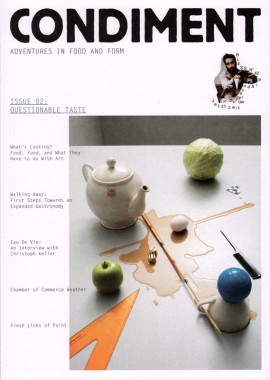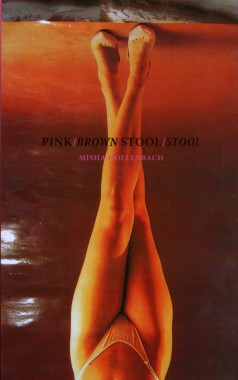Pink/Brown Stool/Stool
Misha Hollenbach, Pink/Brown Stool/Stool
Softcover, 64 pp., offset 4/4, 4.5 x 7 inches
Edition of 250
ISBN 978-0-9825936-3-9
Published by Seems
out of print
Hollenbach is influenced by energy, as his work moves through various mediums including sculpture and painting, printed media and collage. Rather than shy away from objects deemed useless, or unwanted, he embraces their meaningless meanings to create an unfamiliar language containing familiar objects. By employing found objects and pairing them with wit and humor, he continues the narrative of the Dada and Pop artists.
In a lineage that extends through Jim Shaw, Andy Warhol and Marcel Duchamp, the rallying around the already readymade repositions things for freer symbolic enterprises. In the re-presentation of shit, Misha touches upon the etymological origins of faeces, which derives from faex, the Latin for dregs. He is using the dregs, things humans have casted away; shit becomes a metaphor for the unwanted.
By putting these outcasts back together with ready mix, the images of the objects do not return to us as they normally should; they lose their original function. With this method, he is breaking our own need to put the image back together in a fixed or familiar way. He strips back the structure of meaning — and this brings about a danger: the readymades return as phantasms and representations of abstract ideas. A Hush Puppy becomes a Push Poopy. Doodoo becomes Dada.
—Timothy Moore

